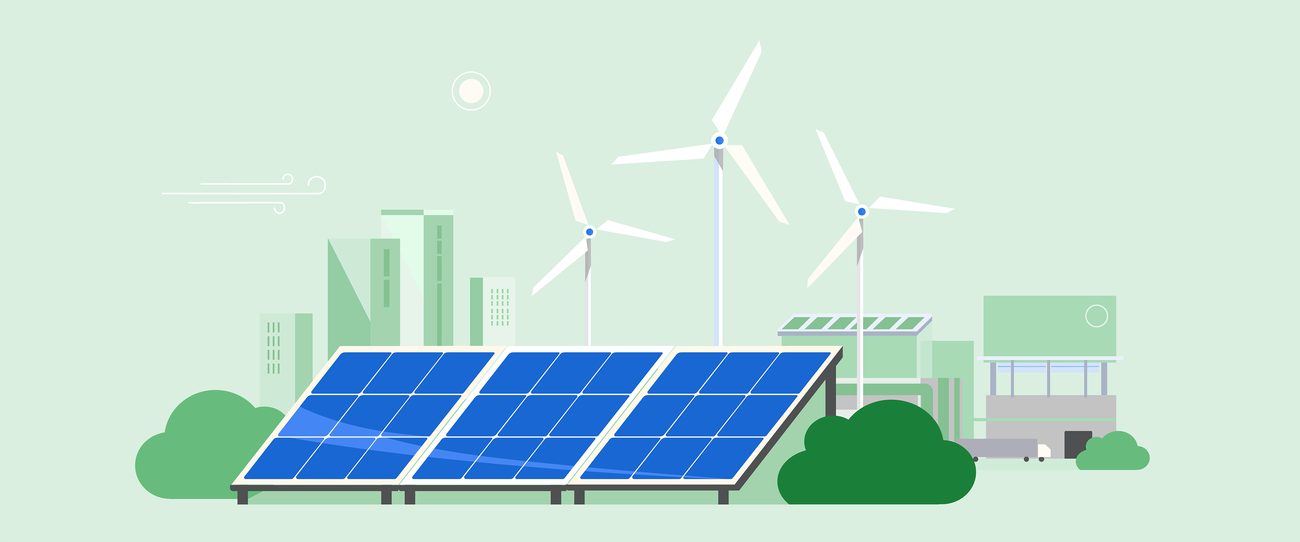[ad_1]
We use data every day when we do things like pull up directions, attend online classes, stream our favorite TV shows or subscribe to online services. The demand for these digital services keeps growing and as it grows, so does the need to process, store, and safeguard enormous quantities of digital information.
So, how does this work? Where does the “cloud” really live? The answer is: data centers.
Data centers are the engines behind the digital services that help people and businesses thrive, and keep the internet up and running around the world. They are Where The Internet Lives. Google tools like Search, Gmail and Maps, as well as our ongoing AI innovations, are all powered by our data centers, including those in Loudoun County, Virginia.
Google has been proud to call Loudoun County home since we started building our first data center in the state in 2017. Since then, we have immersed ourselves in the community and developed close partnerships with local leaders to ensure we are bringing the best of Google to drive positive economic, social and environmental impacts.
Today, we released a report with Deloitte to evaluate our progress and we’re sharing five highlights.
- An economic engine in Loudoun County. Google opened two data centers in the past five years in Loudoun, driving significant economic impact. The report finds that Google added approximately $1.1 billion annually to the county’s gross domestic product (GDP). Google’s operations created roughly 3,500 jobs, including about 400 direct jobs in 2022. Additionally, the tax revenue the data centers generate helps to support the county’s schools, social services, and more.
- Social advancement through community support. The report shows that Google drives positive change in the community in a number of ways. From 2017 to 2022, Google.org awarded $2.4 million in grants, focusing heavily on supporting STEM education programs, access to clean drinking water, protecting local businesses affected by the COVID-19 pandemic, and initiatives that strengthen the social fabric of the community. We strive to be more than just a corporate presence, but a partner looking for ways to promote the community’s well-being. As an example, we have a long-term partnership with Mobile Hope and have supported several of their initiatives. This includes the launch of Trading Up, a trade school aimed at equipping 18-24 year olds with the skills necessary for a career in plumbing, electrical, HVAC and other high-paying skilled trades.
- Training tomorrow’s workforce. The growth in technology industries in Northern Virginia — including data centers — requires an increasing number of skilled workers. To help meet the need, we partnered with 16 educational institutions across the Commonwealth, including Northern Virginia Community College to offer Grow with Google Career Certifications. Students earned certifications after successfully completing three to six month training courses in a variety of technology-related subjects like cybersecurity, data analytics and IT support. 75% of the graduates report a positive career outcome following completion of the program.
- Powering a cleaner future. Google’s data centers are among the most efficient in the world, operating, on average, 1.5x as energy efficient as a typical enterprise data center and delivering three times more computing power for the same amount of electrical power than we did five years ago. Google was the first major company to set an ambitious 2030 goal to run its business on carbon-free energy (CFE), every hour of every day, in all of its data centers and campuses worldwide. To support this ambition, in 2021, we announced a 10-year agreement with AES to supply 24/7 carbon-free energy for Google data centers in Virginia. In 2022, the Loudoun data centers were powered by 60% carbon free sources, compared to 39.4% from the regional energy mix.
- Climate-Conscious Water Stewards. Google’s commitment to responsible water use includes a climate-conscious approach to data center cooling, complemented by intentional water stewardship that is centered on assessing water-related risks at the site and basin level and addressing challenges in partnership with local experts. For example, we recently announced a successful collaboration with The Alliance for the Chesapeake Bay (Alliance) and Maryland & Virginia Milk Producers Cooperative Association (MDVA) to improve water quality in the Northern Virginia region by installing riparian buffers along the perimeter of Virginia dairy farms.
We remain committed to the Loudoun County community and we’re just getting started. Northern Virginia has proven to be a great place for us to put down roots and we’re excited for our continued growth with the recent opening of a new data center campus in Prince William County. We look forward to building on the momentum we’ve had in Loudoun County and finding new ways to contribute in the future.
[ad_2]
Source link







